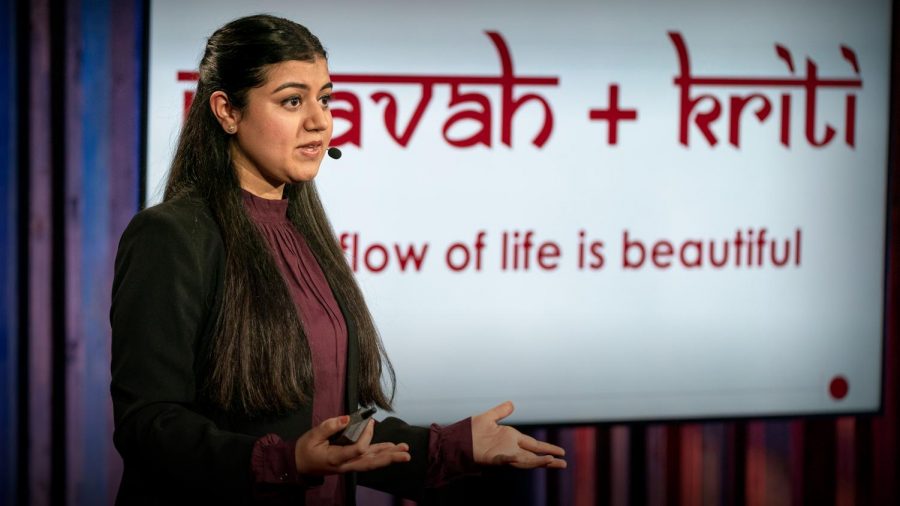Pravahkriti: The Campaign for Period Positivity
May 6, 2020
Most women endure a monthly hormonal cycle known as menstruation, a natural biological process that, put simply, prepares the female body for the possibility of pregnancy. And no living creature could be here without it. So, why does it remain such an “embarrassing” subject to talk about?
Women go through a lot to hide their discomfort and pain when on their periods, whether it be stuffing a pad into your pocket and running to the restroom during the middle of class or trying your best to act casual while chatting with friends when, really, you’re internally crying due to intense period cramps.
There are also countless myths and stereotypes surrounding premenstrual syndrome, as it is known to cause both physical and emotional changes due to hormonal shifts. The most common misconceptions are that women experience headaches and dizziness, bloating or swelling, and emotionally, are more prone to rapid mood changes, from being easily-irritated to throwing fits and acting out of control. This inaccurate, over-exaggerated portrayal of premenstrual women suggests that the female sex is wild and unprincipled, led by emotion rather than logic or reason. It is because of these falsehoods that women are often perceived as “inferior” to men. Many people question, how can a woman act sensibly when they have to deal with premenstrual syndrome? As for women, it is not only our voices but also our concerns about our health and our dignity that are threatened by these cultural stereotypes.
The deep-rooted stigma attached to menstruation has led society to dismiss issues concerning the female hormonal process for lack of understanding. The reality is that not every woman is privileged enough to afford sanitary napkins every month or even have access to clean water and soap to maintain personal hygiene. This is true for 335 million girls around the world, some of whom have the privilege of attending school but are never taught about menstruation, and therefore cannot understand what their bodies are going through. Even in the U.S., two-thirds of low-income women report being unable to afford menstrual hygiene products, according to a survey conducted by Obstetrics & Gynecology researchers. This doesn’t even account for the homeless, transgender, intersex, and displaced people who menstruate!
Frustrated by this unjust treatment, Ananya Grover, an alumna of the Global Young Leaders Academy at the Wharton School, University of Pennsylvania, along with three other classmates, established a community-level campaign advocating for period positivity. The campaign is based in India and the name they choose for it is “Pravahkriti,” which translates to the message they wish to convey to the world. “Pravah” means “flow” and “kriti” means “a beautiful creation.” It alludes to how a woman’s monthly cycle allows for creation on Earth.
Pravahkriti is based on four fundamental pillars: health, hygiene, awareness, and spreading positivity. Starting small, their volunteers took to schools to educate children on menstruation, but rather than read off a textbook, Grover and her team have adopted a more fun and engaging approach. The activity involves students stringing along 28 beads on a piece of string to form a bracelet. The number of beads is meant to signify the length of the menstrual cycle. Four to seven of the beads are of a different color, indicating the days a woman bleeds.
The lessons are also not only limited to girls, as Grover believes boys should be equally informed and educated. This being said, the campaign has created safe spaces where young girls can feel comfortable sharing personal stories and experiences while boys, in turn, are allowed to ask questions, no matter how ridiculous they may think they are.
Moreover, Pravahkriti, has been able to donate hundreds of pads, collected through pad donation drives at schools. When distributing pads, particularly to school children, they package them in period kits that also consist of soap and sanitizer along with a packet of ginger tea and dark chocolate. To sustain this effort, sanitary napkin dispensers have been installed in several schools, in addition to implementing physical period trackers to help girls without internet access record their monthly cycle.
Though the campaign has made a lot of progress, Grover does acknowledge that there is still much to be achieved. This was made clear during one of her visits to an underprivileged school. There, she had encountered a girl who had just gotten her first period but wasn’t provided anything to absorb the flow. Instead, she was forced to sit through class feeling embarrassed and uncomfortable as she bled through her clothes. Grover recalls the deep sense of shame and fear the girl felt for her parents who had dismissed her cries for help, costing their own daughter her sense of dignity and health.
This being said, Grover expresses that real change will only happen if more and more people begin accepting the idea that menstruation is completely normal and not something to feel ashamed about. If society as a whole were more open to talking about periods, we would be able to address menstrual health issues and work to provide all women with the necessary hygiene products in addition to proper education about their ever-changing bodies.
Picture courtesy of TED.COM

